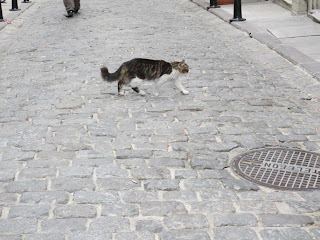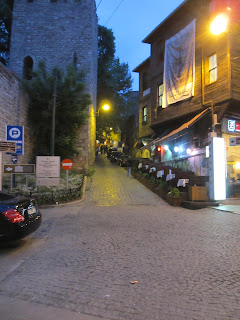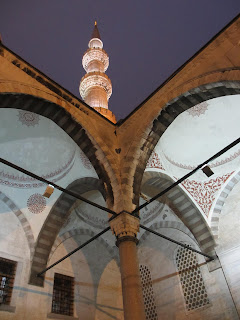Today I read an interview. Regardless of the identity of the public persona, I could not understand how the woman telling the story of her life (a very sad one, actually) did not go out of her mind when reading the draft of the interview. She recollected how she had given up work and settled for being just a housewife, how she spent all of her life alone, while her husband was away, working, and her children busy with ignoring her.
In a nutshell, it was the saddest story I have ever read, and I do have a good knowledge in this subject. What puzzled me the most was that she did not question her existence, no matter how frightened she was of financial instability and being alone (besides her marital status, she was actually alone).
And even though she could not realize it in the past, when she read the interview, was she not horrified? Was not she sad and embittered that she lived her life without being loved, cherished, respected and cared for? And so I remembered what a genius Plato was for writing the Allegory of the Cave.
A few days ago I was talking with one of my friends about the few models of womanhood we had had as little girls. I had an aunt that was very stylish, but the thing about her was her scent. I remember when she came to visit (and my sister and I were very happy to share our room with her) and everything she touched would smell like her. It was a mix of chamomile and nicotiana alata on a summer night. She did not have to say anything as she was enchanting everybody with her scent. She used to laugh differently and initiate different kind of conversations. But most of all, I cherish her and her memory as she was the one that introduced me to the novels of Vlad Musatescu.
I have rarely seen women paying attention to themselves, their lives and their needs, women that could be proud of the way they lived their lives, women that dared to smile, women that were able to look at a calendar and not divide the calendar year into periods for doing the holiday cleaning and cooking. I hate it when Romanian women choose how to understand getting ready for holidays. They engage themselves in a “general cleaning”, as they call it, and in cooking more than everybody can eat. And they stop at that, rightfully tired.
And thus, I cannot see this interview but an important “do pay attention”. Maybe instead of religious icons Romanian women insist on putting in their houses, they should frame this interview. And keep it as a token of self-esteem.
































